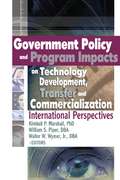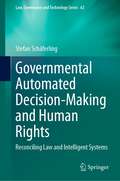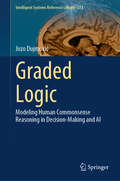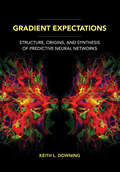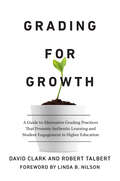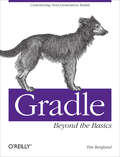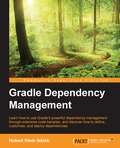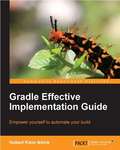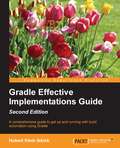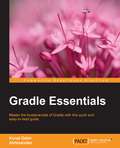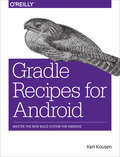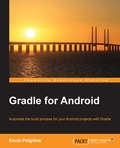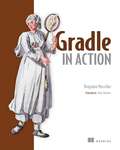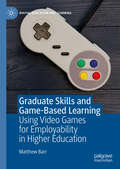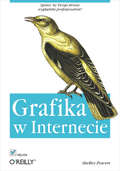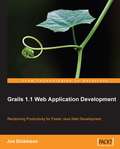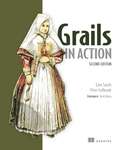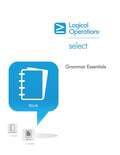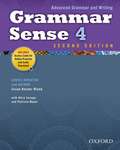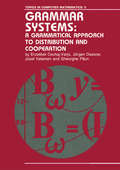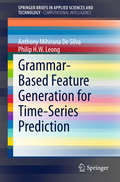- Table View
- List View
Government Policy and Program Impacts on Technology Development, Transfer, and Commercialization: International Perspectives
by Kimball Marshall William PiperIn recent decades, government-funded technologies have produced radar, microwave ovens, modern cell phone systems, the Internet, new materials for aircraft and motor vehicles, and new medical instrumentation. This first-of-its-kind book examines how access to technology is affected by government policies and government-sponsored programs.Government Policy and Program Impacts on Technology Development, Transfer, and Commercialization: International Perspectives provides an easy-to-read overview of the field and several studies serving as examples to guide government policymakers and private sector decision makers. This forward-looking book also forecasts the potential impacts of government regulation upon the field and presents provocative discussions of the ethical implications of the cross-cultural and cross-national challenges facing technologically developed nations in the global economy.This book reviews this broad field by first providing an overview of the goals of government technology policies and programs as well as of generic types of government technology programs. Next, it presents carefully selected studies that illustrate the potential impacts of government decisions upon marketing constraints, industry acceptance of regulatory requirements, economic development, gross domestic product, and the choices firms make when it comes to location, competitiveness, product development, and other factors. The final chapters explore ethical considerations from a global perspective. These chapters also explore the implications of these considerations in relation to the success of governmental and private sector technology transfer and commercialization programs. The macromarketing perspective taken by the contributors serves to ground the impacts of government technology policies and programs in practical implications for economic development, business productivity, and quality of life. The contributors to this unique collection share their expertise on government sponsorship of technology research, the impact of government regulation upon technology marketing and economic development, the effects of government policies on business practices, intellectual property rights, and much more.Government Policy and Program Impacts on Technology Development, Transfer, and Commercialization shows how evolving technology and government policy changes have affected: the commercialization of music-new media, piracy problems, consumer choices and costs, and changes in the radio and concert promotion industries the adoption of new household technology licensure requirements for telemedicine-with an essential overview of telemedicine plus examinations of relevant governmental regulations and potential applications patents, copyrights, trademarks, licensing, and proprietary information scrap tire disposal-new alternatives for a chronic waste disposal problem food product development state-owned enterprises-with a case study illustrating how a stagnant state-owned company quickly evolved into China&’s leading firm in the textile machinery field
Governmental Automated Decision-Making and Human Rights: Reconciling Law and Intelligent Systems (Law, Governance and Technology Series #62)
by Stefan SchäferlingWith the growing capabilities of artificial intelligence, governments are integrating AI technologies into administrative and even judicial decision-making, aiding and in some cases even replacing human decision-makers. Predictive policing, automated benefits administration, and automated risk assessment in criminal sentencing are but a few prominent examples of a general trend. While the turn towards governmental automated decision-making promises to reduce the impact of human biases and produce efficiency gains, reducing the human element in governmental decision-making also entails significant risks. This book analyses these risks through a comparative constitutional law and human rights lens, examining US law, German law, and international human rights law. It also highlights the structural challenges that automation poses for legal systems built on the assumption of exclusively human decision-making. Special attention is paid to the question whether existing law can adequately address the lack of transparency in governmental automated decision-making, its discriminatory processes and outcomes, as well as its fundamental challenge to human agency. Building on that analysis, it proposes a path towards securing the values of human dignity and agency at the heart of democratic societies and the rule of law in an increasingly automated world. This book will be of interest to researchers and scholars focusing on the evolving relationship of law and technology as well as human rights scholars. Further, it represents a valuable contribution to the debate on the regulation of artificial intelligence and the role human rights can play in that process.
Grab Life by the Balls: And Other Life Lessons from The Good Advice Cupcake
by Loryn Brantz Kyra KupetskyFollow along with The Good Advice Cupcake as she doles out razor-smart, hilarious, and shocking advice on everything from career goals to falling in love! The Good Advice Cupcake -- or Cuppy, to those in the know -- may be cute, but she's not afraid to grab life by the balls! In this charming gift book, Cuppy shares her tried-and-true wisdom on everything from love and money, to self-care and fashion, to career and happiness, and the crazy, sticky things in between -- all the while managing to look completely adorable and delicious. Whether she's advising you to take more naps or fit cheese into your diet, you don't want to miss a minute of advice from everyone's favorite sassy cupcake.
Graded Logic: Modeling Human Commonsense Reasoning in Decision-Making and AI (Intelligent Systems Reference Library #273)
by Jozo DujmovićObservable human commonsense reasoning can be modeled with graded propositional logic. Our approach is distinctive in that all mathematical models are directly linked to specific, observable, and explainable mental activities. Decision-makers evaluate alternatives through perceived gradations of truth, importance, suitability, simultaneity, and substitutability. Each graded variable has a semantic identity, reflecting its role and meaning tied to the goals and interests of a specific decision-maker. Graded logic was introduced 50 years ago, and this book presents its current status based on a half-century of improvements and applications. The book includes examples of decision problems solved using graded logic models. Our aim is to provide readers with a solid theoretical foundation in graded propositional calculus, enabling them to confidently apply the LSP method on complex evaluation and decision problems. Additionally, the book suggests numerous directions for future research and applications.
Gradient Expectations: Structure, Origins, and Synthesis of Predictive Neural Networks
by Keith L. DowningAn insightful investigation into the mechanisms underlying the predictive functions of neural networks—and their ability to chart a new path for AI.Prediction is a cognitive advantage like few others, inherently linked to our ability to survive and thrive. Our brains are awash in signals that embody prediction. Can we extend this capability more explicitly into synthetic neural networks to improve the function of AI and enhance its place in our world? Gradient Expectations is a bold effort by Keith L. Downing to map the origins and anatomy of natural and artificial neural networks to explore how, when designed as predictive modules, their components might serve as the basis for the simulated evolution of advanced neural network systems.Downing delves into the known neural architecture of the mammalian brain to illuminate the structure of predictive networks and determine more precisely how the ability to predict might have evolved from more primitive neural circuits. He then surveys past and present computational neural models that leverage predictive mechanisms with biological plausibility, identifying elements, such as gradients, that natural and artificial networks share. Behind well-founded predictions lie gradients, Downing finds, but of a different scope than those that belong to today&’s deep learning. Digging into the connections between predictions and gradients, and their manifestation in the brain and neural networks, is one compelling example of how Downing enriches both our understanding of such relationships and their role in strengthening AI tools. Synthesizing critical research in neuroscience, cognitive science, and connectionism, Gradient Expectations offers unique depth and breadth of perspective on predictive neural-network models, including a grasp of predictive neural circuits that enables the integration of computational models of prediction with evolutionary algorithms.
Grading for Growth: A Guide to Alternative Grading Practices that Promote Authentic Learning and Student Engagement in Higher Education
by David Clark Robert TalbertAre you satisfied with your current and traditional grading system? Does it accurately reflect your students’ learning and progress? Can it be gamed? Does it lead to grade-grubbing and friction with your students?The authors of this book – two professors of mathematics with input from colleagues across disciplines and institutions – offer readers a fundamentally more effective and authentic approach to grading that they have implemented for over a decade. Recognizing that traditional grading penalizes students in the learning process by depriving them of the formative feedback that is fundamental to improvement, the authors offer alternative strategies that encourage revision and growth.Alternative grading is concerned with students’ eventual level of understanding. This leads to big changes: Students take time to review past failures and learn from them. Conversations shift from “why did I lose a point for this” to productive discussions of content and process.Alternative grading can be used successfully at any level, in any situation, and any discipline, in classes that range from seminars to large multi-section lectures.This book offers a comprehensive introduction to alternative grading, beginning with a framework and rationale for implementation and evidence of its effectiveness. The heart of the book includes detailed examples – including variations on Standards-Based Grading, Specifications Grading, and ungrading -- of how alternative grading practices are used in all kinds of classroom environments, disciplines and institutions with a focus on first-hand accounts by faculty who share their practices and experience. The book includes a workbook chapter that takes readers through a step-by-step process for building a prototype of their own alternatively graded class and ends with concrete, practical, time-tested advice for new practitioners.The underlying principles of alternative grading involve·Evaluating student work using clearly defined and context-appropriate content standards.·Giving students helpful, actionable feedback.·Summarizing the feedback with marks that indicate progress rather than arbitrary numbers.·Allowing students to revise without penalty, using the feedback they receive, until the standards are met or exceeded.This book is intended for faculty interested in exploring alternative forms of learning assessment as well as those currently using alternative grading systems who are looking for ideas and options to refine practice.
Grading for Growth: A Guide to Alternative Grading Practices that Promote Authentic Learning and Student Engagement in Higher Education
by David Clark Robert TalbertAre you satisfied with your current and traditional grading system? Does it accurately reflect your students’ learning and progress? Can it be gamed? Does it lead to grade-grubbing and friction with your students?The authors of this book – two professors of mathematics with input from colleagues across disciplines and institutions – offer readers a fundamentally more effective and authentic approach to grading that they have implemented for over a decade.Recognizing that traditional grading penalizes students in the learning process by depriving them of the formative feedback that is fundamental to improvement, the authors offer alternative strategies that encourage revision and growth.Alternative grading is concerned with students’ eventual level of understanding. This leads to big changes: Students take time to review past failures and learn from them. Conversations shift from “why did I lose a point for this” to productive discussions of content and process.Alternative grading can be used successfully at any level, in any situation, and any discipline, in classes that range from seminars to large multi-section lectures. This book offers a comprehensive introduction to alternative grading, beginning with a framework and rationale for implementation and evidence of its effectiveness. The heart of the book includes detailed examples – including variations on Standards-Based Grading, Specifications Grading, and ungrading -- of how alternative grading practices are used in all kinds of classroom environments, disciplines and institutions with a focus on first-hand accounts by faculty who share their practices and experience. The book includes a workbook chapter that takes readers through a step-by-step process for building a prototype of their own alternatively graded class and ends with concrete, practical, time-tested advice for new practitioners.The underlying principles of alternative grading involve·Evaluating student work using clearly defined and context-appropriate content standards.·Giving students helpful, actionable feedback.·Summarizing the feedback with marks that indicate progress rather than arbitrary numbers.·Allowing students to revise without penalty, using the feedback they receive, until the standards are met or exceeded.This book is intended for faculty interested in exploring alternative forms of learning assessment as well as those currently using alternative grading systems who are looking for ideas and options to refine practice.
Gradle Beyond the Basics: Customizing Next-Generation Builds
by Tim BerglundIf you’re familiar with Gradle’s basics elements—possibly through the author’s previous O’Reilly book, Building and Testing with Gradle—this more advanced guide provides the recipes, techniques, and syntax to help you master this build automation tool. With clear, concise explanations and lots of ready-to-use code examples, you’ll explore four discrete areas of Gradle functionality: file operations, custom Gradle plugins, build lifecycle hooks, and dependency management.Learn how to use Gradle’s rich set of APIs and Groovy-based Domain Specific Language to customize build software that actually conforms to your product. By using the techniques in this book, you’ll be able to write domain-specific builds that support every other line of code your team creates.Examine Gradle’s file API, including copy tasks, pattern matching, content filtering, and the FileCollection interfaceUnderstand the process for building and packaging a custom Gradle plug-inManage build complexity with hook methods and Gradle’s rule featureLearn how Gradle handles dependency management natively and through customizationExplore Gradle’s core plug-ins as well as key examples from the Gradle community
Gradle Dependency Management
by Hubert Klein IkkinkIf you work on Java projects, use Gradle as a build automation tool, and you use dependencies in your project, this is the book for you. Additionally, if you want to deploy your project artifacts as dependencies for other developers using Gradle, you've found the right book.
Gradle Effective Implementation Guide
by Hubert Klein IkkinkWritten in Packt's tutorial format the hands on examples and real life applications that will guide you through Gradle and give you the knowledge to use it every day. If you are a Java developer who wants to automate compiling, packaging and deploying your application this book is for you.
Gradle Effective Implementations Guide - Second Edition
by Hubert Klein IkkinkA comprehensive guide to get up and running with build automation using Gradle About This Book * Practical and engaging from start to finish covering the fundamentals of Gradle * Learn the skills required to develop Java applications with Gradle and integrate at an enterprise level * Apply the correct plugin and configuration to our Gradle build files to work with the different languages Who This Book Is For This book is for Java developers who have working knowledge of build automation processes and are now looking to gain expertise with Gradle and add to their skill set. What You Will Learn * Write your first Gradle Script * Write build logic with the Gradle build language * Explore the Java plugins supported by Gradle * Understand dependency management in Gradle * Package and publish your (web) application * Integrate Scala and Groovy with Gradle * Write your own custom tasks and plugins * Integrate Gradle with your IDE In Detail Gradle is a project automation tool that has a wide range of applications. The basic aim of Gradle is to automate a wide variety of tasks performed by software developers, including compiling computer source code to binary code, packaging binary codes, running tests, deploying applications to production systems, and creating documentation. The book will start with the fundamentals of Gradle and introduce you to the tools that will be used in further chapters. You will learn to create and work with Gradle scripts and then see how to use Gradle to build your Java Projects. While building Java application, you will find out about other important topics such as dependency management, publishing artifacts, and integrating the application with other JVM languages such as Scala and Groovy. By the end of this book, you will be able to use Gradle in your daily development. Writing tasks, applying plugins, and creating build logic will be your second nature. Style and approach This step-by-step guide aims to cover the fundamentals of Gradle and focuses on providing the practical skills required to develop web application.
Gradle Essentials
by Abhinandan Kunal DabirMaster the fundamentals of Gradle using real-world projects with this quick and easy-to-read guide About This Book * Write beautiful build scripts for various types of projects effortlessly * Become more productive by harnessing the power and elegance of the Gradle DSL * Learn how to use Gradle quickly and effectively with this step-by-step guide Who This Book Is For This book is for Java and other JVM-based language developers who want to use Gradle or are already using Gradle on their projects. No prior knowledge of Gradle is required, but some familiarity with build-related terminologies and an understanding of the Java language would help. What You Will Learn * Master the Gradle DSL by identifying the building blocks * Learn just enough Groovy for Gradle * Set up tests and reports for your projects to make them CI ready * Create library, stand-alone, and web projects * Craft multi-module projects quickly and efficiently * Migrate existing projects to a modern Gradle build * Extract common build logic into plugins * Write builds for languages like Java, Groovy, and Scala In Detail Gradle is an advanced and modern build automation tool. It inherits the best elements of the past generation of build tools, but it also differs and innovates to bring terseness, elegance, simplicity, and the flexibility to build. Right from installing Gradle and writing your first build file to creating a fully-fledged multi-module project build, this book will guide you through its topics in a step-by-step fashion. You will get your hands dirty with a simple Java project built with Gradle and go on to build web applications that are run with Jetty or Tomcat. We take a unique approach towards explaining the DSL using the Gradle API, which makes the DSL more accessible and intuitive. All in all, this book is a concise guide to help you decipher the Gradle build files, covering the essential topics that are most useful in real-world projects. With every chapter, you will learn a new topic and be able to readily implement your build files. Style and approach This step-by-step guide focuses on being productive with every chapter. When required, topics are explained in-depth to give you a good foundation of the Gradle fundamentals. The book covers most aspects of builds required for conventional JVM-based projects, and when necessary, points you towards the right resources.
Gradle Recipes for Android: Master the New Build System for Android
by Ken KousenAndroid adopted Gradle as the preferred build automation system a few years ago, but many Android developers are still unfamiliar with this open source tool. This hands-on guide provides a collection of Gradle recipes to help you quickly and easily accomplish the most common build tasks for your Android apps. You’ll learn how to customize project layouts, add dependencies, and generate many different versions of your app.Gradle is based on Groovy, yet very little knowledge of the JVM language is required for you to get started. Code examples use Android SDK version 23, with emulators from Marshmallow (Android 6) or Lollipop (Android 5). If you’re comfortable with Java and Android, you’re ready.Understand Gradle’s generated build files for Android appsRun Gradle from the command line or inside Android StudioAdd more Java libraries to your Android appImport and export Eclipse ADT projectsDigitally sign a Release APK for the Google Play storeUse product flavors to build many versions of the same appAdd custom tasks to the Gradle build processTest both your app’s Android and non-Android componentsImprove the performance of your Gradle build
Gradle for Android
by Kevin PelgrimsIf you are an experienced Android developer wanting to enhance your skills with the Gradle Android build system, then this book is for you. As a prerequisite, you will need some knowledge of the concepts of Android application development.
Gradle in Action
by Benjamin MuschkoSummaryGradle in Action is a comprehensive guide to end-to-end project automation with Gradle. Starting with the basics, this practical, easy-to-read book discusses how to build a full-fledged, real-world project. Along the way, it touches on advanced topics like testing, continuous integration, and monitoring code quality. You'll also explore tasks like setting up your target environment and deploying your software.About the TechnologyGradle is a general-purpose build automation tool. It extends the usage patterns established by its forerunners, Ant and Maven, and allows builds that are expressive, maintainable, and easy to understand. Using a flexible Groovy-based DSL, Gradle provides declarative and extendable language elements that let you model your project's needs the way you want.About the BookGradle in Action is a comprehensive guide to end-to-end project automation with Gradle. Starting with the basics, this practical, easy-to-read book discusses how to establish an effective build process for a full-fledged, real-world project. Along the way, it covers advanced topics like testing, continuous integration, and monitoring code quality. You'll also explore tasks like setting up your target environment and deploying your software.The book assumes a basic background in Java, but no knowledge of Groovy.Purchase of the print book includes a free eBook in PDF, Kindle, and ePub formats from Manning Publications.Whats InsideA comprehensive guide to GradlePractical, real-world examplesTransitioning from Ant and MavenIn-depth plugin developmentContinuous delivery with GradleAbout the AuthorBenjamin Muschko is a member of the Gradleware engineering team and the author of several popular Gradle plugins.Table of ContentsPART 1 INTRODUCING GRADLEIntroduction to project automationNext-generation builds with GradleBuilding a Gradle project by examplePART 2 MASTERING THE FUNDAMENTALSBuild script essentialsDependency managementMultiproject buildsTesting with GradleExtending GradleIntegration and migrationPART 3 FROM BUILD TO DEPLOYMENTIDE support and toolingBuilding polyglot projectsCode quality management and monitoringContinuous integrationArtifact assembly and publishingInfrastructure provisioning and deployment
Graduate Savvy: Navigating the World of Online Higher Education (2nd edition)
by Jeffrey L. GreenGraduate Savvy begins with a compelling exploration of online learning as it moves into the heart of the text, which is to help you succeed should you decide to enroll in a web-based program. Topics such as plagiarism, Bloom's Taxonomy, scholarly sources, and academic writing make this a must read for all graduate learners.
Graduate Skills and Game-Based Learning: Using Video Games for Employability in Higher Education (Digital Education and Learning)
by Matthew BarrThis book explores the efficacy of game-based learning to develop university students’ skills and competencies. While writing on game-based learning has previously emphasised the use of games developed specifically for educational purposes, this book fills an important gap in the literature by focusing on commercial games such as World of Warcraft and Minecraft. Underpinned by robust empirical evidence, the author demonstrates that the current negative perception of video games is ill-informed, and in fact these games can be important tools to develop graduate skills related to employability. Speaking to very current concerns about the employability of higher education graduates and the skills that university is intended to develop, this book also explores the attitudes to game-based learning as expressed by instructors, students and game developers.
Grafika w Internecie
by Shelley PowersSpraw, by Twoja strona wyglšda?a profesjonalnie! Jaki format wybra? dla plików graficznych?Jak tworzy? grafik? u?ytkowš?Jak wykorzysta? grafik? wektorowš? Wszyscy doskonale wiemy o tym, ?e o warto?ci strony internetowej ?wiadczš tre?ci na niej umieszczone. Nie da si? jednak zaprzeczy?, ?e forma, w jakiej sš one podane, równie? ma znaczenie. Osišgni?cie równowagi w tym zakresie nie jest rzeczš ?atwš. Jak sprawi?, ?eby nie dosz?o do przerostu formy nad tre?ciš? Jak zapewni? optymalny stosunek jako?ci u?ytych grafik do ich obj?to?ci (w ko?cu przepustowo?? ?šczy nie jest niesko?czona)? Przy du?ej liczbie odwiedzajšcych ró?nica kilku kilobajtów mo?e prze?o?y? si? na ogromny wzrost obciš?enia ?šczy, a co za tym idzie, wzrost kosztów utrzymania strony. Wydawa?oby si?, ?e te i wiele innych kwestii mogš rozwišza? tylko profesjonali?ci. Jednak wcale nie musi tak by?! Ka?dy, kto przeczyta t? ksiš?k?, b?dzie czu? si? swobodnie w zagadnieniach zwišzanych z publikacjš i wykorzystaniem grafiki w Internecie!Dzi?ki ksiš?ce "Grafika w internecie" poznasz wszystkie aspekty pracy z obrazami umieszczanymi w globalnej sieci. Shelley Powers przedstawi Ci wykorzystywane formaty plików graficznych oraz poka?e, do czego ka?dy z nich nadaje si? najlepiej. Zdob?dziesz wiedz? na temat dost?pnych narz?dzi do obróbki grafiki -- zarówno tych p?atnych, jak i darmowych. Ponadto nauczysz si? tworzy? miniatury zdj?? i uk?ada? zdj?cia na stronie. Dowiesz si?, jak tworzy? grafik? u?ytkowš, jakie zasady obowišzujš przy pracy z grafikš wektorowš oraz jakie mo?liwo?ci drzemiš w formacie SVG. Na koniec zapoznasz si? z tematami zwišzanymi z projektowaniem stron internetowych -- zrozumiesz, jak wykorzysta? kaskadowe arkusze stylów (CSS), jak przygotowa? dobrš i przejrzystš stron? oraz jak dynamicznie zmienia? w?a?ciwo?ci grafiki! Je?eli my?lisz, ?e praktyczne wykorzystanie grafiki na stronach WWW to wiedza tajemna, ta ksiš?ka z pewno?ciš to zmieni!Formaty plików graficznych i ich zastosowaniePrzygotowanie zdj?? do publikacji w InternecieNarz?dzia do obróbki grafiki -- p?atne i darmoweEdytory obrazów dost?pne onlineTworzenie miniatur Sposoby uk?adania zdj?? na stronieNarz?dzia do automatycznego generowania galerii oraz pokazów slajdówTworzenie grafiki u?ytkowejWykorzystanie grafiki wektorowej i formatu SVGZastosowanie kaskadowych arkuszy stylów (CSS)Zasady tworzenia dobrych stron WWWNarz?dzia u?atwiajšce projektowanie stron WWWDynamiczna modyfikacja grafikAutomatyzacja obróbki grafiki -- narz?dzie ImageMagick oraz obróbka za pomocš PHP/GDSposób wykorzystania serwisów Google Maps oraz Yahoo! Maps?šczenie danych z grafikš Poznaj wszystkie aspekty praktycznego wykorzystania grafiki w Internecie!
Grails 1.1 Web Application Development
by Jon DickinsonThis book is a guide to building a rich web application using Grails. The approach taken for building the application is incremental and iterative; each chapter will produce a working addition to the application, or iterate over existing features, as well as introduce and carefully explain the new part of the Grails framework used. The book does not go into exhaustive descriptions of every detail of Grails. While there is a lot of code in the book, there are very few large code listings. As you will find, it is not necessary to write reams of code to get results using Groovy and Grails. This book is aimed at Java web developers looking for ways to build web applications quickly, and wanting to find out how it's done quickly. If you are frustrated with integrating the many different frameworks that are available for web development and want to get on with building slick web applications for your users, then this book is for you. Grails is built on the Groovy language, but experience in Groovy is not required, as you will learn enough about Groovy to understand how to use Grails.
Grails 2: A Quick-Start Guide
by Dave Klein Ben KleinGrails is a full-stack web development framework that enables you to build complete web applications in a fraction of the time and with less code than other frameworks. Grails uses the principle of convention over configuration and the dynamic Groovy programming language.This revised and updated new edition shows you how to use Grails by iteratively building a unique, working application. By the time you're done, you'll have built and deployed a real, functioning website. Using this hands-on, pragmatic approach, you'll explore topics such as Ajax in Grails, custom tags, and plugins. You'll dig into Grails' powerful view technology, Groovy Server Pages, and see how you can easily leverage the help offered by scaffolding to create custom user interfaces faster than you would have thought possible. Along the way, you'll learn about domain classes, controllers, and GSP views. And you'll see how Grails enables you to use powerful frameworks such as Spring and Hibernate.With Grails, you can get a lot done with little effort. With this book, you'll get a lot done as well. Get started with Grails today.What You Need:Grails 2 will run on any machine that supports Java. Grails applications can be deployed on any Java Servlet container, including Tomcat, Jetty, WebLogic, JBoss, and Websphere.
Grails in Action
by Glen Smith Peter LedbrookSummaryGrails in Action, Second Edition is a comprehensive introduction to Grails 2 focused on making you super-productive fast. In this totally revised new edition, you'll master Grails 2.3 core skills as you apply TDD techniques to developing a full-scale Twitter clone. Along the way you'll learn the latest single-page web app UI techniques, work with NoSQL backends, integrate with enterprise messaging, and implement a complete RESTful API for your services. Purchase of the print book includes a free eBook in PDF, Kindle, and ePub formats from Manning Publications.About the TechnologyIt may be time for you to stop reconfiguring, rewriting, and recompiling your Java web apps. Grails, a Groovy-powered web framework, hides all that busy work so you can concentrate on what your applications do, not how they're built. In addition to its famously intuitive dev environment and seamless integration with Spring and Hibernate, the new Grails 2.3 adds improved REST support, better protection against attacks from the web, and better dependency resolution.About the BookGrails in Action, Second Edition is a comprehensive introduction to Grails 2. In this totally revised edition you'll master Grails as you apply TDD techniques to a full-scale example (a Twitter clone). Along the way you'll learn single-page web app techniques, work with NoSQL back ends, integrate with enterprise messaging, implement a RESTful API ... and more.No Java or Groovy knowledge is required. Some web development and OOP experience is helpful.What's InsideCovers Grails 2.3 from the ground upAgile delivery and testing using SpockHow to use and manage pluginsTips and tricks from the trenchesAbout the AuthorsThere's no substitute for experience: Glen Smith and Peter Ledbrook have been fixtures in the Grails community, contributing code, blogging, and speaking at conferences worldwide, since Grails 0.2.Table of ContentsPART 1 INTRODUCING GRAILSGrails in a hurryThe Groovy essentialsPART 2 CORE GRAILSModeling the domain 63Creating the initial UIRetrieving the data you needControlling application flowServices and data bindingDeveloping tasty forms, views, and layoutsPART 3 EVERYDAY GRAILSBuilding reliable applicationsUsing plugins: just add waterProtecting your applicationExposing your app to other programsSingle-page web applications (and other UI stuff) Understanding Spring and transactionsPART 4 ADVANCED GRAILSUnderstanding events, messaging, and scheduling NoSQL and GrailsBeyond compile, test, runGrails in the cloudBONUS ONLINE CHAPTERSAdvanced GORM kung fuDeveloping plugins
Grammar Essentials
by Susan HermanImproving your grammar will help you deliver polished and professional written communications. Correct grammar and a refined, concise writing style can help you clearly articulate your ideas to others, streamline the directions and instructions that you deliver, and create impressive presentations and reports.
Grammar Sense 4
by Susan KesnerGrammar Sense is a four-level discourse-based grammar series which focuses on the connection between form, meaning, and use of English structures. The series is based on the fundamental premise that English grammar is learnable and teachable if it is systematically organized and explained. Grammar Sense implements linguistic and applied linguistic research on how, where, when, and why native speakers use English structures, and how non-native speakers learn them. This series provides learners with a true understanding of how grammar is used in authentic contexts. Grammar is presented in discourse rather than in isolated sentences which allows the students to understand English grammar in real life situations.
Grammar Systems: A Grammatical Approach to Distribution and Cooperation
by Jozef Kelemen Gheorghe Paun Erzsebet Csuhaj-Varju Jurgen DassowFirst Published in 1994. The central problem of the “classic” formal language theory concerns the generation (the recognition) of languages by grammars (automata, respectively). However, in present day computer science, in artificial intelligence, in cognitive psychology and in other related fields we have to deal more and more with complex tasks distributed among a set of “ processors” , which are working together in a well defined way. Parallel computers, computer nets, distributed data bases and knowledge sources are practical materializations of this idea. Similarly, the psychologists speak about the modularity of mind, in problem solving theories there appear many models based on cognitive agents’ cooperation. As the formal language theory is involved in most of these circumstances (for example, as a theoretical framework, well developed from a mathematical point of view, for modelling aspects whose essence can be captured at the level of symbol systems, of the syntax of collections of strings of abstract symbols), a clear challenge appears for it: to consider systems o f grammars/automata, working together for generating/recognizing a language. In this context, notions such as distribution, cooperation, communication, concurrency, synchronization, parallelism etc. should be formalized and enlightened. The present monograph is an attempt to answer this challenge.
Grammar-Based Feature Generation for Time-Series Prediction
by Anthony Mihirana De Silva Philip H. W. LeongThis book proposes a novel approach for time-series prediction using machine learning techniques with automatic feature generation. Application of machine learning techniques to predict time-series continues to attract considerable attention due to the difficulty of the prediction problems compounded by the non-linear and non-stationary nature of the real world time-series. The performance of machine learning techniques, among other things, depends on suitable engineering of features. This book proposes a systematic way for generating suitable features using context-free grammar. A number of feature selection criteria are investigated and a hybrid feature generation and selection algorithm using grammatical evolution is proposed. The book contains graphical illustrations to explain the feature generation process. The proposed approaches are demonstrated by predicting the closing price of major stock market indices, peak electricity load and net hourly foreign exchange client trade volume. The proposed method can be applied to a wide range of machine learning architectures and applications to represent complex feature dependencies explicitly when machine learning cannot achieve this by itself. Industrial applications can use the proposed technique to improve their predictions.
